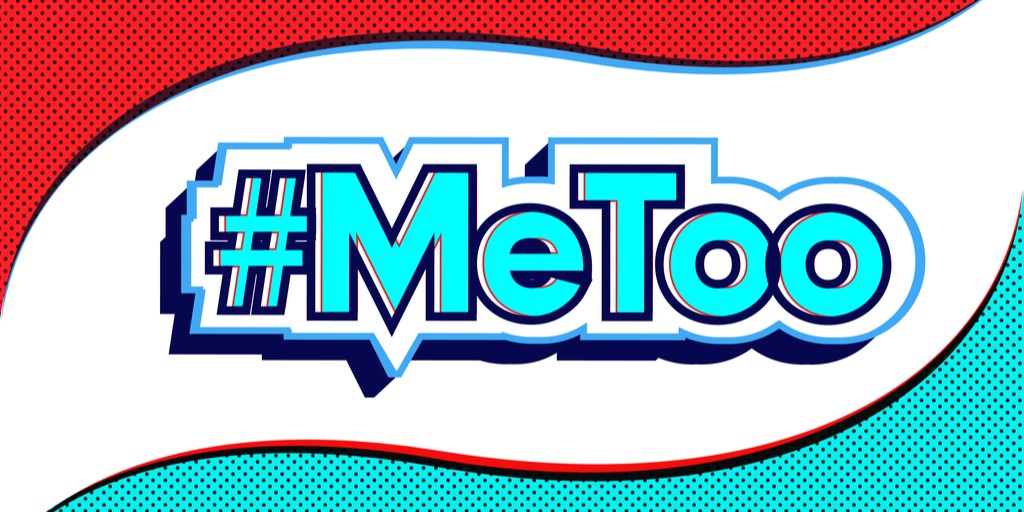Social Mores Have Changed; Biology Hasn’t
Let’s talk about three sexual harassment cases.
A female coach and physical education teacher sued the school district because another employee, also female, made crude remarks about her breasts, touched her without permission, and said, “I will think of you next time I am f—ing.”
A female employee receives sexually explicit text messages from the man responsible for training her. While the trainer doesn’t have hire/fire authority over her, he certainly can influence her career. His wife eventually finds out and sends the female employee a profane message. The employee complains to her supervisor and is fired for violating a work rule.
A boss tells his employee to “date,” and send “nudie” pictures to, a potential client in order to help convince this client to move his business. The boss offers the employee a big bonus in exchange for this, but doesn’t end up giving her one.
All three seem like cut-and-dried sexual harassment cases. If I were the human resources manager in any of these cases, the perpetrator would have been fired, or at least severely disciplined, for inappropriate workplace behavior. But, in the crazy world of sexual harassment law, inappropriate sexual workplace behavior doesn’t always equal sexual harassment, even when it seems inextricably tied to sexual behavior.
In each of these examples, the courts found that the bad behavior didn’t amount to actionable sexual harassment.
In the first case, the Texas Supreme Court ruled that it wasn’t sexual harassment because the harasser was someone who habitually offended others. The judges determined that she didn’t harass “because of sex” but because she was a jerk. The law doesn’t prohibit jerk-like behavior.
In the second, the employee admitted that she wasn’t offended by the explicit text messages. Because the law requires the victim to be offended, it wasn’t sexual harassment.
In the third, the boss didn’t have power to grant a discretionary bonus, so the courts concluded that there was no actual quid pro quo element to what happened.
Now, of course, as most of the United States has at-will employment, the three employers in these cases would have been free to fire the offender, whether or not what the person did legally qualified as sexual harassment. In the state of Montana (where employment is not at-will), or in instances where there is a contract (such as in a unionized workplace), it could become stickier.
The Problem of Law and Relationships
We tend to think of law in terms of bright lines. The “Thou shalt nots” we learned about in Sunday School. Thou shalt not steal. Okay, that money belongs to the company, so I can’t use it to buy new shoes for myself. Those are easy. But no such bright line exists in sexual harassment law.
In order to be considered sexual harassment, behavior must be:
- Because of sex
- Unwanted
- Offensive to a reasonable person
- The cause of tangible injury (economic, not physical, although physical injury would qualify)
- Severe or pervasive
We could change the law so that we simply cannot talk about sex, have sex with coworkers, or send via text message anything that would qualify for a PG13 or above rating. But that wouldn’t actually create a world most people want to live in.
Because of the “unwanted” qualification, a consensual sexual relationship—from flirting to everything else—is allowed under Title VII of the Civil Rights Act (where sexual harassment law comes from) as long as everyone agrees. How do you know if your flirting is welcome, though, unless you flirt first?
It’s kind of a one-strike and you’re out rule, but as Rachel Lu points out in her Liberty Forum essay, that’s hardly the romantic image we have in mind. When you think about chick flicks, the guy who asks once, politely, “Would you like to go see a movie?” is never the guy who gets the girl. When John Cusack held up his boom box to get Ione Skye’s attention in Say Anything, we didn’t shout “Sexual harassment!” No, we wanted him to get the girl.
The social mores have absolutely changed, but the biology hasn’t. Women want high status men and men devalue women who are too easy to get. So, she’s interested in the boss, who is forbidden to date anyone who reports directly to him, and he’s not interested in the woman who says yes too easily.
The other complicated thing is that things can change rapidly, as Lu points out. The #MeToo movement came on fast and hard, and suddenly things that everyone knew about for years but had turned a blind eye toward were horrific. Most of us would find the antics of Harvey Weinstein or Matt Lauer to be objectively bad. They were able to maintain power because they had power to begin with.
But what about other behaviors that aren’t so objectively bad?
Take, for instance, the male professor who cracked a joke in an elevator. Richard Ned Lebow, a professor of political theory at King’s College London, was on elevator with Simona Sharoni, a professor of women’s and gender studies at Merrimack College. When asked about floors, Lebow took the opportunity to reference the department store elevator operators of old who would describe each floor by what it carried. “Ladies’ lingerie!” he said. (Sharoni claims it was “women’s lingerie” but the difference hardly matters.)
Sharoni claimed sexual harassment, and the International Studies Association demanded that Lebow apologize. He refused.
Of course, these two weren’t work colleagues; but if they were, it’s hard to see how this would fit the definition of sexual harassment. There’s no indication that he said the phrase because women were in the elevator. Granted, it was unwanted by Sharoni, but it was a first contact. Sharoni suffered no injury, and two words can hardly be defined as “severe or pervasive.”
What has followed, though, are hearings, letters, demands, and a lot of public debate—over a two-word phrase, said in jest. That’s certainly a huge change from years past. Yet there’s no new law saying that we can’t joke about anything remotely related to the opposite gender.
A Modest Proposal
We could bar people from talking about sex at work, ever. We could decree that you must find your dating partners the new, modern way—on the Internet—rather than at work. But then we go home from work and we turn on the television and watch Netflix, or we go to the movies, and what do we see on screen? A whole lot of sexual content.
In February, Netflix released a list of their most binged shows. They are: Orange Is the New Black, Breaking Bad, The Walking Dead, Stranger Things, House of Cards, Sons of Anarchy, Fuller House, American Horror Story, Family Guy, and Grey’s Anatomy. How many of these shows would have had the same content if the writers, actors, directors, and technical assistants, in their studio workplaces, were forbidden to discuss sex? Even the squeaky-clean Fuller House was full of sexual innuendo. Stranger Things had teens engaging in sex.
Employment attorney Ann Fromholz, advised some sex based businesses on harassment law, and explained it this way:
Here in Los Angeles, there is a company (actually there are a few) that produces print and video featuring naked women. The walls of the company’s office are adorned with photos from the magazines. The magazines themselves are in the lobby waiting area and in employees’ offices. Does the presence of that many pictures of nude women create an unlawfully hostile work environment? My answer to that question is no. The photos on the walls and the magazines on tables and desks are the company’s product. Conversations about the photos and magazines that are limited to work topics also would be ok. But the moment that an employee starts to talk about their personal sexual attraction to one of the models, or what they might hope to do with that model, the conversation crosses the line to one the creates an unlawful hostile environment based on sex.
So, if the nudity or sexual content is directly related to the work you do, then that’s okay. But it doesn’t change the actual behavior—just the setting.
The law doesn’t say that sexual behavior or discussion at work is right or wrong. There is no bright line. And you add to it that the victim must be offended, and it’s no wonder that we spend time arguing over jokes and then declaring that someone who sends sexually explicit texts didn’t actually engage in harassment.
So, the law gives us unexpected results, allowing sexual behavior in certain settings, and the rules on what a reasonable person would see as harassment change from day to day. What’s an HR manager to do?
The only practical solution is to make rules tighter than the law allows. Employers ought to punish those who breach internal company rules. The people in the first three examples, as I said, all should have been disciplined. In some situations this is a sensible solution. But what should your internal rules be? Do we really want a society where we can’t crack a joke or ask someone out twice? And do we really want an HR manager to manage our love lives? We don’t.
Neither do we want to be blindsided when our own sense of propriety doesn’t match everyone else’s in the room. Companies are required to investigate every sexual harassment claim, which takes time and money, even if the claim is ridiculous and unfounded. A company that fails to investigate can be held liable, and no company wants that.
So what we have now is a body of law that is unclear, that changes based on the type of work you do, that does not allow you to determine if your behavior is out of line until after you’ve done it. And still the courts permit instances of egregious behavior to go on. No wonder we’re in the midst of #MeToo.



